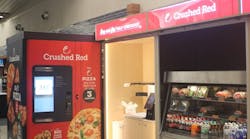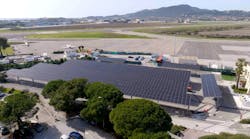Southwest Airlines didn’t show too much LUV to SRQ a couple of weeks back.
“LUV” is Southwest’s stock ticker symbol and “SRQ” is the designation for the Sunshine State’s Sarasota-Bradenton International Airport.
Frederick J. Piccolo, SRQ president, picked up the phone on a Friday morning to hear a midlevel manager from Southwest Airlines telling him that AirTran service would fly away for good this August from his airport. That left a big hole in the airport’s flight plan – AirTran flew about a third of its passengers last year and was its second-largest carrier after seven years of service.
By the way, Piccolo’s no slouch in charge of some “small” airport. He’s currently the vice chairman of the Airport Council International’s World Governing Body.
Typically, you might expect that to be the end of it – at least publically. But Piccolo was a “guest columnist” for the local paper, The Sarasota Herald-Tribune and wrote about the “real story” behind AirTran’s departure for the paper’s Jan. 26th edition.
Piccolo starts out diplomatically and says “no one can dispute the right of any private company, including Southwest, to make decisions that are in its best interest.” (At our last count 15 other airports have lost their AirTran service as Southwest whittled away at AirTran’s markets.)
Afterward, Piccolo starts taking the gloves off by reminding readers that the airline “leaves an airport serving two robust and growing communities – both of which, along with the federal government and SRQ – supported AirTran’s initial service through the Air Service Development Program.” He doesn’t offer specifics about this federal program, but we’ve read elsewhere that the total incentive package to lure the airline was as much as $4 million.
Piccolo then tallies up what a pretty good deal any airline receives by flying into SRQ:
- SRQ charges a landing fee 50 percent less than Tampa International Airport.
- Terminal rental rates are 40 percent less than Tampa.
- SRQ generated a $1 million operating surplus in the 2011 fiscal year. That entire surplus is rebated to the airlines. Southwest/AirTran’s take was $250,000. That check was cut and ready to be given to the airline on the very day of the phone call.
So why the bum’s rush? Well, there was more to that Friday morning phone call. Piccolo writes that he was told “ground service cost” to operate Southwest is about 60 percent higher than it is for AirTran. Nearly 90 percent of Southwest’s employees are members of a bargaining unit, and the labor agreements stipulate that ground support work be done by Southwest employees.
“Southwest was disingenuous to leave the impression that the community’s size and patronage, along with fuel conditions, were the major culprits,” Piccolo concludes in his column.
Piccolo did get an apology – over the phone – on Jan. 30 from Ron Ricks, Southwest’s executive vice president and chief legal and regulatory officer.
“He agreed that a decision of this magnitude should have been done in person, and their method was wrong,” Piccolo told the local paper.
But it didn’t change the decision.
Meanwhile, airport officials are urging local passengers to use the other airlines at SRQ and tell Southwest that they won’t drive to Tampa in order to take a Southwest flight. Piccolo is already talking to other airlines about picking up the slack. Since the phone call, he’s talked to Delta, JetBlue Airways, US Airways, Continental and Spirit Airlines.


